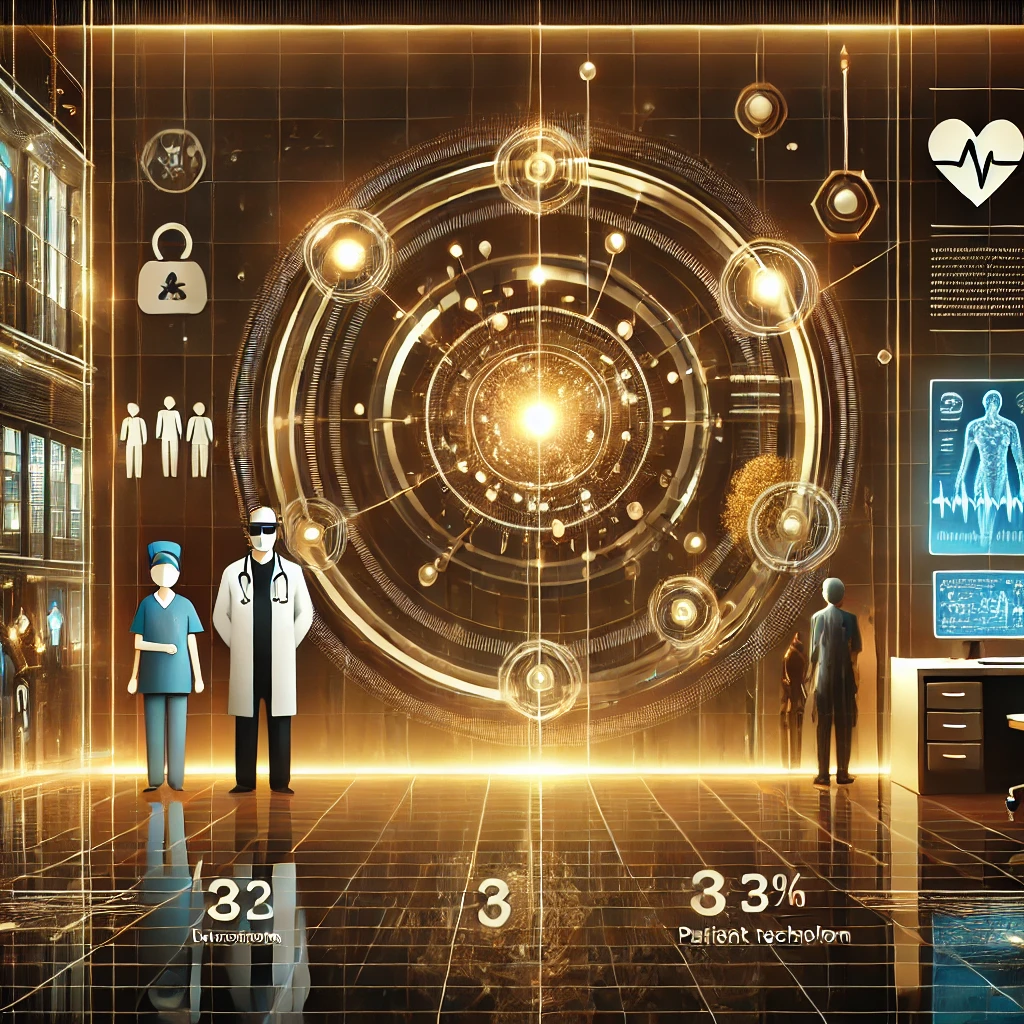Future of Health: The Emerging Landscape of Augmented Intelligence in Health Care

About Course
Course Overview
In this course, we explore the transformational potential of augmented intelligence (AI) in the practice of medicine and outline practical considerations for physicians who are using or considering using AI-based tools for clinical or administrative purposes. “Artificial intelligence” broadly refers to the ability of computers to perform tasks that are typically associated with a rational human being—a quality that enables an entity to function appropriately and with foresight in its environment.AI, machine learning and deep learning are distinct but related terms . Machine learning, a subtype of AI, describes systems that learn from data without being explicitly programmed. Deep learning, a subtype of machine learning, refers to systems that train themselves by processing data and information in a manner similar to the neural pathways of the human brain.AI tools can play a critical role in clinical delivery, they may similarly transform administrative functions.
Obtained Skills
- Knowledge-Based Training Skills:
Core Concepts of AI in Healthcare
- Fundamentals of AI and machine learning (ML), including deep learning and natural language processing (NLP).
- Overview of healthcare-specific AI applications: diagnostics, predictive analytics, personalized medicine, and workflow optimization.
Healthcare Context
- Familiarity with clinical workflows, medical terminologies, and challenges in patient care.
- Understanding data sources in healthcare, such as Electronic Health Records (EHRs), medical imaging, and genomic data.
- Skill-Based Training Skills:
Technical Skills
- Data Handling:
- Basics of healthcare data preprocessing and handling large datasets.
- Working with structured (e.g., EHRs) and unstructured data (e.g., medical notes).
- Hands-On Tool Proficiency
- Familiarity with software and platforms used in healthcare AI
- Integration of AI tools with hospital information systems.
- Ethical and Regulatory Training Skills :
- Regulations and Compliance
- Understanding GDPR, HIPAA, and other data protection laws.
- Compliance with medical AI-specific regulations, including FDA guidelines.
- Ethics in AI
- Addressing bias in AI models and ensuring fairness.
- Balancing innovation with patient safety and privacy.
- Interpersonal and Strategic Training Skills :
Change Management
- Training on strategies to introduce AI tools in clinical settings.
- Managing resistance to technology adoption among healthcare professionals.
Training needs
- Lack of information about machine learning as atraining method that uses rewards and punishments to teach desired and undesired behaviors as part of model training.
- Inability to integrate AI into the daily workflows of healthcare professionals in clinical settings.
- Lack knowledge about the best application of translating AI in healthcare into practical Practice.
- Gap in knowledge about evidence synthesis, effective dissemination and implementation, and evaluating the impact of AI in healthcare.
- Gap knowledge of Machine Learning and Deep Learning Techniques and applications in healthcare.
- Gap in using Artificial intelligence (AI) and the potential to revolutionize medical professional health education.
- Lack of knowledge of Educational skills and training about Human-Machine Interaction and AI Education.
- Insufficient Traditional Population health methods to address complex health issues and emerging infectious diseases.
- Lack of understanding of how AI can improve patient-centered care.
Outcomes
Equip collaboration between Medical and Non-Medical Professionals about the knowledge, skills, and confidence to utilize Artificial Intelligence tools and technologies for data analysis, disease prediction, intervention design, and effective population health management:
- Emphasizing AI as a tool to 𝘀𝘂𝗽𝗽𝗼𝗿𝘁, 𝗻𝗼𝘁 𝗿𝗲𝗽𝗹𝗮𝗰𝗲, 𝗵𝘂𝗺𝗮𝗻 𝗱𝗲𝗰𝗶𝘀𝗶𝗼𝗻-𝗺𝗮𝗸𝗶𝗻𝗴.
- Explores the transformative potential of Augmented Intelligence (AI) in healthcare.
- Identify optimized scheduling to minimize wait times and maximize alignment of patient needs and physician experience.
- Monitor a clinical interaction with a model patient and provide feedback to the physician or trainee.
- Analyze electronic health records at scale to identify potential human research subjects.Understand the fundamentals of artificial intelligence and its applications in medical education.
- Enhance critical thinking and problem-solving skills in integrating AI into medical training.Discover how Generative AI (GenAI) can help you personalize care and save time by expanding your capabilities.
- Learn The integration of artificial intelligence into medical professional health education can yield several positive outcomes in terms of training effectiveness and outcomes.
- Safeguarding patient data and ensuring compliance with regulations like HIPAA are critical.
Course Curriculum
Introduction to Artificial Intelligence in Clinical Practice
-
Introduction to Artificial Intelligence in Clinical Practice part 1
18:22 -
Introduction to Artificial Intelligence in Clinical Practice part 2
23:05 -
Introduction to Artificial Intelligence in Clinical Practice part 3
18:38 -
Quiz 1
AI Tools in medical care
-
AI Tools in medical care Part 1
22:15 -
AI Tools in medical care Part 2
19:12 -
AI Tools in medical care Part 3
21:09 -
Quiz 2
AI-Driven Clinical Decision Support Systems
-
AI-Driven Clinical Decision Support Systems Part 1
18:35 -
AI-Driven Clinical Decision Support Systems Part 2
28:07 -
AI-Driven Clinical Decision Support Systems Part 3
30:32 -
Quiz 3
AI in Genomic Medicine and Precision Healthcare
-
AI in Genomic Medicine and Precision Healthcare Part 1
21:13 -
AI in Genomic Medicine and Precision Healthcare Part 2
24:33 -
AI in Genomic Medicine and Precision Healthcare Part 3
17:07 -
Quiz 4
AI-Assisted Electronic Health Records and Clinical Documentation
-
AI-Assisted Electronic Health Records and Clinical Documentation Part 1
15:07 -
AI-Assisted Electronic Health Records and Clinical Documentation Part 2
16:45 -
AI-Assisted Electronic Health Records and Clinical Documentation Part 3
17:49 -
Quiz 5
AI Applications in Remote Monitoring and Telehealth
-
AI Applications in Remote Monitoring and Telehealth Part 1
20:50 -
AI Applications in Remote Monitoring and Telehealth Part 2
22:58 -
AI Applications in Remote Monitoring and Telehealth Part 3
24:11 -
Quiz 6
AI in Drug Discovery and Pharmaceutical Research
-
AI in Drug Discovery and Pharmaceutical Research 1
18:36 -
AI in Drug Discovery and Pharmaceutical Research 2
15:46 -
AI in Drug Discovery and Pharmaceutical Research 3
14:42 -
AI in Drug Discovery and Pharmaceutical Research 4
07:50 -
Quiz 7
AI-Assisted Patient Engagement and Shared Decision-Making
-
AI-Assisted Patient Engagement and Shared Decision-Making 1
13:45 -
AI-Assisted Patient Engagement and Shared Decision-Making 2
11:24 -
AI-Assisted Patient Engagement and Shared Decision-Making 3
15:14 -
AI-Assisted Patient Engagement and Shared Decision-Making 4
20:32 -
Quiz 8
Ethical and Legal Considerations in AI-Enabled Clinical Practice
-
Ethical and Legal Considerations in AI-Enabled Clinical Practice 1
08:37 -
Ethical and Legal Considerations in AI-Enabled Clinical Practice 2
14:09 -
Ethical and Legal Considerations in AI-Enabled Clinical Practice 3
22:06 -
Ethical and Legal Considerations in AI-Enabled Clinical Practice 4
07:17 -
Ethical and Legal Considerations in AI-Enabled Clinical Practice 5
12:18 -
Quiz 9
AI-Driven Predictive Analytics in Healthcare
-
AI-Driven Predictive Analytics in Healthcare 1
11:29 -
AI-Driven Predictive Analytics in Healthcare 2
12:00 -
AI-Driven Predictive Analytics in Healthcare 3
12:11 -
AI-Driven Predictive Analytics in Healthcare 4
10:12 -
Quiz 10
Post Test
-
Post test Quiz
Evaluation Form
-
Activity Evaluation
-
How to Download Course Completion Certificate
01:24
Student Ratings & Reviews

-
LevelAll Levels
-
Total Enrolled468
-
Last UpdatedSeptember 9, 2025
-
CertificateCertificate of completion
